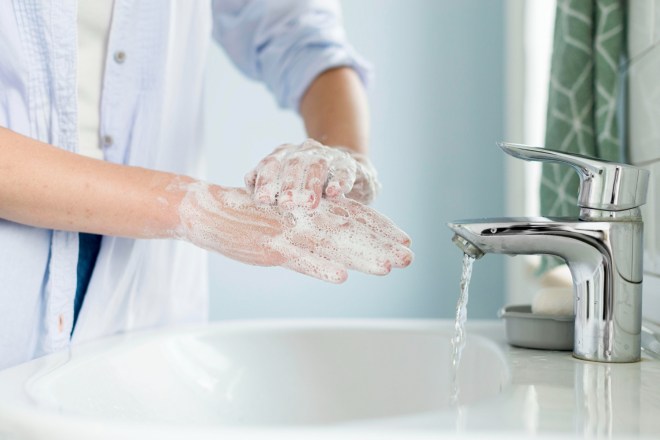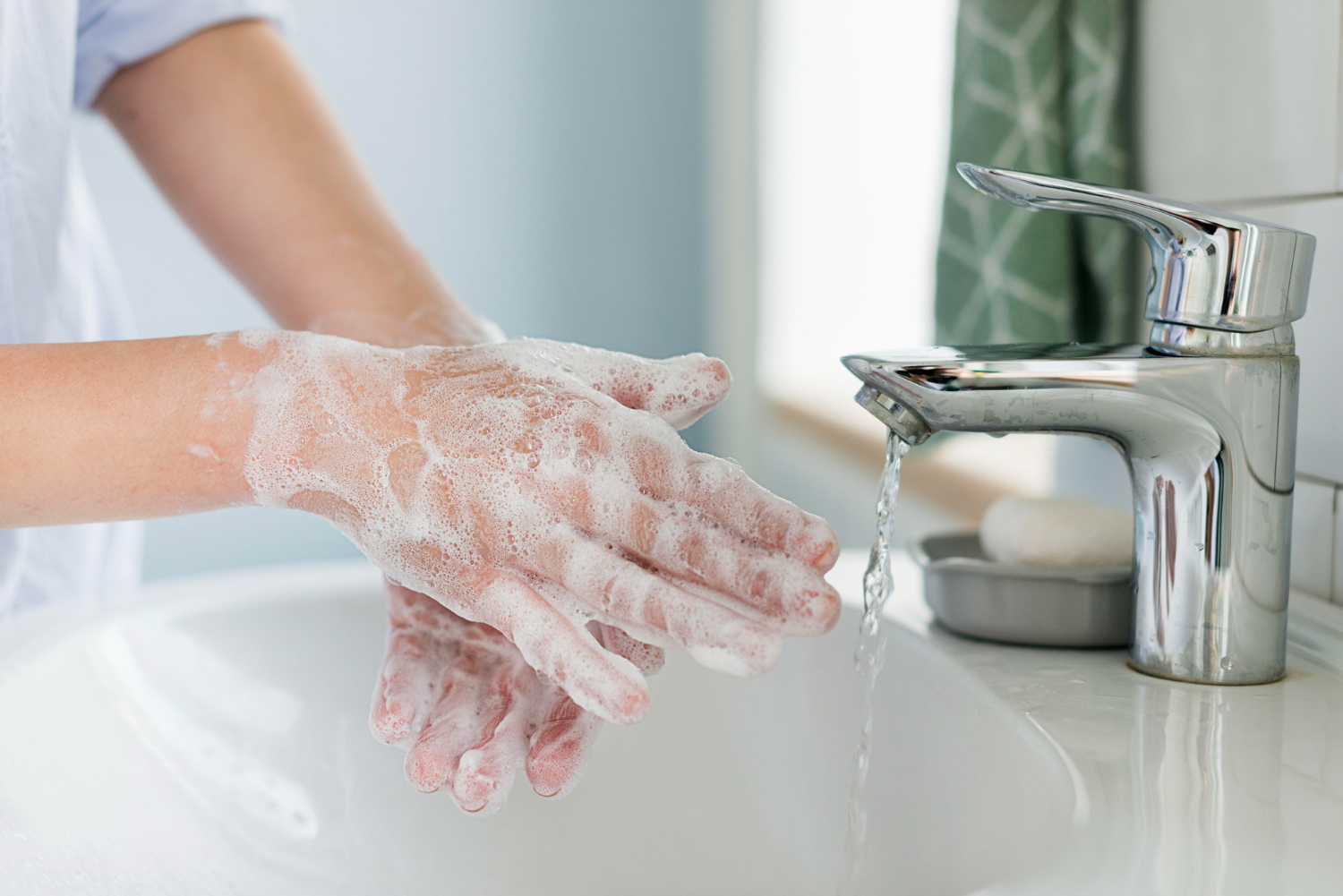Our environment is full of microorganisms floating here and there. These tiny creatures stick to whatever surface they like and try their best to infiltrate our bodies in order to enjoy an endless supply of food. The most common ways these organisms enter a human body is through the mouth, eyes, nose or ears. And how do these organisms reach these orifices? From our hands! Many people don’t realize what might be in contact with their hands before they start eating off of them. This provides a golden opportunity to all the opportunistic organisms to not just get inside that person’s system but also multiply inside of it. This is what causes all sorts of infections. This article will discuss how all such circumstances can be prevented by best handwashing practices, especially before having a meal.

What Are The Best Handwashing Practices?
According to the CDC, the best way to prevent getting sick and spreading germs to others is by regularly washing hands. The ideal method to get rid of germs is using soap to wash your hands thoroughly [1].
There are many soap brands that have been doing their rounds in the market; however, the best one is the one that helps you get rid of bacteria and dirt. Liquid soaps are better than bar soaps as bar soaps can often have a layer of germs sitting on top, whereas liquid soaps are easier and more hygienic. If you have someone who has any kind of skin infection, it is best to use liquid soap in the place of bar soaps.
Moreover, liquid soaps also provide a moisturizing effect to the hands compared to bar soaps, which tend to dry out the skin [2].
What Are The Effects Of Excessive Hand Washing?
Germaphobes are often seen to excessively wash their hands, which can cause their skin to break from the dryness and constant contact of chemicals on the skin. This can also kill off all the good bacteria that otherwise harbor the skin of the hands.
With the rise in COVID-19, handwashing was the number one way to prevent the spread of this infection; therefore, it is hard to determine the exact number of times an individual is required to wash their hands. However, what can be determined is that a person only needs to wash their hands when they have touched any surface that could have germs, for instance, after disposing of garbage or after coming from the loo [3].
When Does Too Much Washing Damage The Skin’s Natural Microbiome?
A person who feels the need to wash his/her hands every few minutes should realize that not only are they damaging the skin of their hands, but all the good bacteria that are supposed to help in the digestion of food are also being killed and washed away. This can also lead to low immunity and increase the risk of infections.
Is Using Hand Sanitizers Necessary?
Using a hand sanitizer is advised in a setting where there is an absence of soap and water. Sanitizers having 60% alcohol are effective in killing bacteria. However, it is not as effective in clearing out all germs as compared to soap and water. They also don’t work very well if the hands are visibly greasy or oily [4].
Conclusion:
Your hands are the most susceptible way for harmful microorganisms to enter your body and cause deadly infections. Routinely using best handwashing practices can keep germs off your body. However, excessive hand washing can destroy the skin’s natural barrier. Using a good soap and hand sanitizer can lower the risk of many infections.
Visit Our Office
Location
2940 FM-2920 Suite#150
Spring, TX 77388
Fax: (281) 730-5919
Hours
Monday – Thursday
8:00am – 5:00pm
Fri-Sat-Sun
CLOSED
References:
- Centers for Disease Control and Prevention. (2022, March 21). Handwashing in communities: Clean hands save lives. Centers for Disease Control and Prevention. Retrieved April 6, 2022, from https://www.cdc.gov/handwashing/index.html
- Which soap is best? Minnesota Dept. of Health. (n.d.). Retrieved April 6, 2022, from https://www.health.state.mn.us/people/handhygiene/how/bestsoap.html
- Greene, D. P. (2021, May 17). Excessive hand washing: How much is too much? Manhattan Center for Cognitive Behavioral Therapy. Retrieved April 6, 2022, from https://www.manhattancbt.com/archives/198/handwashing-how-much-is-too-much/
Centers for Disease Control and Prevention. (2022, March 14). When and how to wash your hands. Centers for Disease Control and Prevention. Retrieved April 6, 2022, from https://www.cdc.gov/handwashing/when-how-handwashing.html

